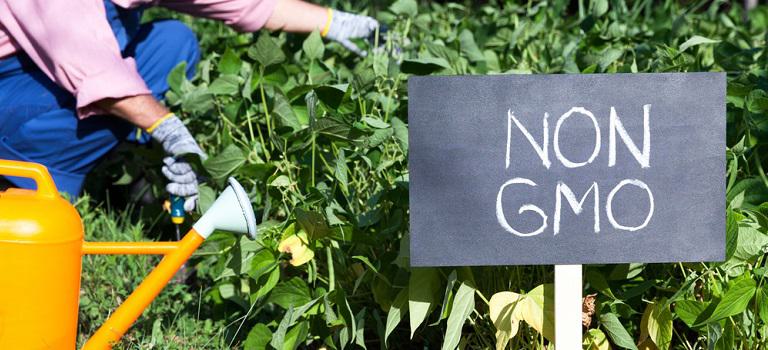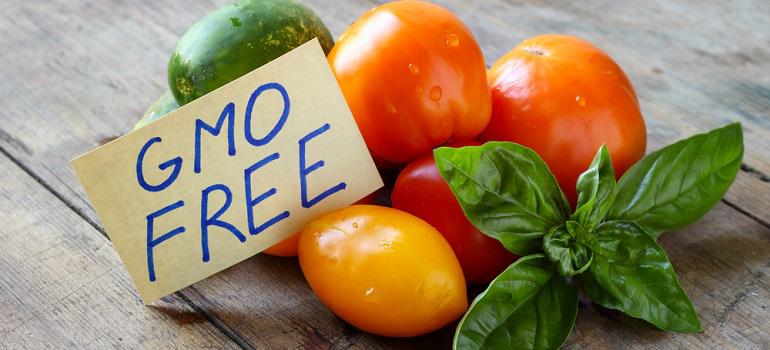


 There are differing degrees of organic certification. Some foods may be 100% organic, while other foods may just be made with organic ingredients. Either way, the basic definition of organic means there has been no chemical or artificial ingredients used in the production of the food, including pesticides, antibiotics, growth hormones, or fertilizers. Organic is also usually non-GMO as well, although there some loopholes that can compromise a foods non-GMO status.
Generally, when you purchase food with a USDA certified organic label, it means that food is 95-100% organic, with ingredients free of well-known contaminants and hormones. It also means that in order for a company to use that USDA certified organic label, they must undergo annual third party inspections and reviews, along with residue testing if inspectors feel the situation warrants it. Thats not to say that there arent some problems with organic labeling. Some foods labeled organic still contain hidden additives that arent organic material. Always do your homework before making decisions that could affect your health.
There are differing degrees of organic certification. Some foods may be 100% organic, while other foods may just be made with organic ingredients. Either way, the basic definition of organic means there has been no chemical or artificial ingredients used in the production of the food, including pesticides, antibiotics, growth hormones, or fertilizers. Organic is also usually non-GMO as well, although there some loopholes that can compromise a foods non-GMO status.
Generally, when you purchase food with a USDA certified organic label, it means that food is 95-100% organic, with ingredients free of well-known contaminants and hormones. It also means that in order for a company to use that USDA certified organic label, they must undergo annual third party inspections and reviews, along with residue testing if inspectors feel the situation warrants it. Thats not to say that there arent some problems with organic labeling. Some foods labeled organic still contain hidden additives that arent organic material. Always do your homework before making decisions that could affect your health.
 GMO refers to an organism or food product that has been genetically modified. In other words, it did not develop naturally. When a food claims non-GMO status, they are basically saying they didnt use ingredients that were genetically modified and it doesnt come from livestock that have been fed genetically modified foods. The Non-GMO Project Verified label is applied to products made from ingredients that have been produced in compliance with the Non-GMO Project Standard. This organization tests products at different stages in the production process, similar to the testing required for the USDA Certified Organic seal.
However, when even water, which has no genetic material, is labeled non-GMO, that should raise a red flag so that you look a little more deeply at what youre actually purchasing. Additionally, the Non-GMO Project Verified label doesnt mean there are absolutely no GMOs present. It means companies have submitted to the Non-GMO Projects standards and have undergone their testing requirements, but there are still limits to those tests. Products labeled non-GMO could still have up to 0.9 percent genetically modified material.
GMO refers to an organism or food product that has been genetically modified. In other words, it did not develop naturally. When a food claims non-GMO status, they are basically saying they didnt use ingredients that were genetically modified and it doesnt come from livestock that have been fed genetically modified foods. The Non-GMO Project Verified label is applied to products made from ingredients that have been produced in compliance with the Non-GMO Project Standard. This organization tests products at different stages in the production process, similar to the testing required for the USDA Certified Organic seal.
However, when even water, which has no genetic material, is labeled non-GMO, that should raise a red flag so that you look a little more deeply at what youre actually purchasing. Additionally, the Non-GMO Project Verified label doesnt mean there are absolutely no GMOs present. It means companies have submitted to the Non-GMO Projects standards and have undergone their testing requirements, but there are still limits to those tests. Products labeled non-GMO could still have up to 0.9 percent genetically modified material.
 The biggest takeaway you need to know between organic foods and non-GMO foods is that organic foods are almost always also non-GMO. Almost always, not always. Look for labels that state 100% USDA certified organic if you want to be as sure as possible. However, the same thing cannot be said for non-GMO foods. They are definitely not always organic. Also, there are many companies who use non-GMO labels in a way that is misleading.
Simply saying something is non-GMO doesnt make it so. It doesnt necessarily mean the company isnt being truthful, but obtaining the necessary certifications can be cost-prohibitive, especially for smaller companies. So, sometimes companies will put something on a label that isnt necessarily certified. Also, note that there are other labels that get used often and can be misleading in both the organic and non-GMO camp. Terms like fair-trade, cage-free, all-natural, grown local . . . while they can mean the product is organic and free of GMOs, it doesnt mean thats always the case. Do your due diligence and make sure before you buy.
The biggest takeaway you need to know between organic foods and non-GMO foods is that organic foods are almost always also non-GMO. Almost always, not always. Look for labels that state 100% USDA certified organic if you want to be as sure as possible. However, the same thing cannot be said for non-GMO foods. They are definitely not always organic. Also, there are many companies who use non-GMO labels in a way that is misleading.
Simply saying something is non-GMO doesnt make it so. It doesnt necessarily mean the company isnt being truthful, but obtaining the necessary certifications can be cost-prohibitive, especially for smaller companies. So, sometimes companies will put something on a label that isnt necessarily certified. Also, note that there are other labels that get used often and can be misleading in both the organic and non-GMO camp. Terms like fair-trade, cage-free, all-natural, grown local . . . while they can mean the product is organic and free of GMOs, it doesnt mean thats always the case. Do your due diligence and make sure before you buy.
 Since you cant be sure non-GMO foods are always organic, its a much safer bet to shop organic. Then you can be reasonably certain that most of your organic foods will also be free of GMOs as well. Look for the USDA Certified Organic label. Youll notice that products like our Organic 7 Grain Pancake and Waffle Mix and Organic Quick Cooking Steel Cut Oats have a little green-and-white label stating USDA Organic.
When shopping, thats the label you should look for. Moral of the story? Yes, organic usually means non-GMO. But be careful, because non-GMO does not always mean organic. Shop wisely.
Since you cant be sure non-GMO foods are always organic, its a much safer bet to shop organic. Then you can be reasonably certain that most of your organic foods will also be free of GMOs as well. Look for the USDA Certified Organic label. Youll notice that products like our Organic 7 Grain Pancake and Waffle Mix and Organic Quick Cooking Steel Cut Oats have a little green-and-white label stating USDA Organic.
When shopping, thats the label you should look for. Moral of the story? Yes, organic usually means non-GMO. But be careful, because non-GMO does not always mean organic. Shop wisely.